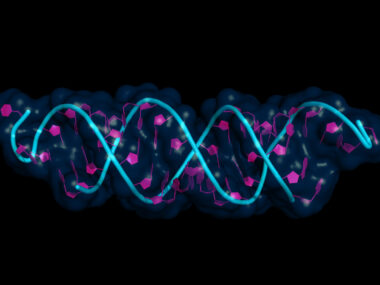MRC Holland’s SMA diagnostic tests win updated EU certification
The three assays identify genetic mutations associated with SMA
Written by |

Tests by MRC Holland for identifying genetic mutations associated with spinal muscular atrophy (SMA) have met new regulatory requirements in the European Union (EU), enabling them to remain certified for diagnostic use.
Products that have received the new certification include the MC002 Newborn Screen, MLPA Probemix P060 SMA Carrier, and MLPA Probemix P021 SMA.
In the EU, CE marking certifies that a product meets the health, safety, and environmental standards that enable it to be marketed in that area. Previously, to earn that mark and be used in diagnostic testing, assays like these had to meet requirements under the In Vitro Diagnostic Directive (IVDD), but more rigorous requirements went into effect in May 2022 under the In Vitro Diagnostic Regulation (IVDR).
To maintain compliance, products formerly certified under IVDD had to be re-certified under the IVDR framework. To receive the certification, manufacturers may need to submit more in-depth data about the safety and performance of their products.
Importance of genetic testing in SMA
Having met this requirement ahead of the deadline, the three SMA tests are now available on the market with IVDR certification. Another SMA test — the P460 SMA (Silent) Carrier assay — remains under IVDD status.
“This milestone ensures continued access to these important diagnostic tools for European diagnostic labs, supporting informed clinical decision-making in SMA care,” the company stated in a press release to SMA News Today.
SMA, a rare inherited neuromuscular disease, is mainly caused by mutations in the SMN1 gene. These mutations lead to a lack of the SMN protein that’s important for the health of the specialized nerve cells involved in motor control.
In more than 90% of SMA cases, the disease-causing genetic defect is a complete loss of a protein-coding portion (exon) of SMN1 called exon 7 in both copies of the gene — the ones inherited from both mother and father. People with only one mutated SMN1 copy are considered disease carriers. They don’t develop SMA, but can pass the mutation on to their children.
Another relevant gene is SMN2, which is similar in structure to SMN1 and also produces SMN, albeit substantially less. The number of copies of SMN2 an SMA patient has can influence their disease severity, with more copies generally linked to greater SMN production and milder disease.
Because of its known genetic underpinnings, genetic testing to identify disease-related mutations is the gold standard for reaching an SMA diagnosis.
What do MRC Holland’s assays test for?
MRC Holland’s tests are designed to aid SMA diagnoses and carrier identification.
MC002 SMA Newborn Screen is intended for newborn screening to detect SMA in babies shortly after birth using a tiny dried blood sample. It’s made to quickly and cost-effectively detect exon 7 deletions in both copies of SMN1.
The P060 SMA Carrier and P021 SMA assays are intended to facilitate SMA diagnoses, carrier testing, and genetic testing of at-risk family members. P060, used as the main assay for carrier detection, detects certain genetic changes in SMN1, namely deletions or duplications of genetic material in exons 7 and 8 of the gene. P021, as the main assay for SMA patient detection, looks more broadly for disease-related mutations. It also provides a more robust analysis of SMN2 gene copy numbers to provide insight into prognosis and treatment eligibility, according to MRC Holland.
MC002 is also registered for diagnostic use in Israel and Thailand, P060 is also registered in Colombia, Costa Rica, and Israel, and P021 is also registered in Colombia and Israel. The assays can only be used for research purposes in other areas.
“Receiving the IVDR certification demonstrates our longstanding commitment to providing accessible genetic testing with assays that meet the highest quality and safety standards,” MRC Holland stated in a separate announcement.
To date, a number of the company’s other products have also received the new IVDR certification, including ones to detect genetic mutations linked to Charcot-Marie-Tooth disease, breast and ovarian cancer, Parkinson’s disease, and other disorders.




